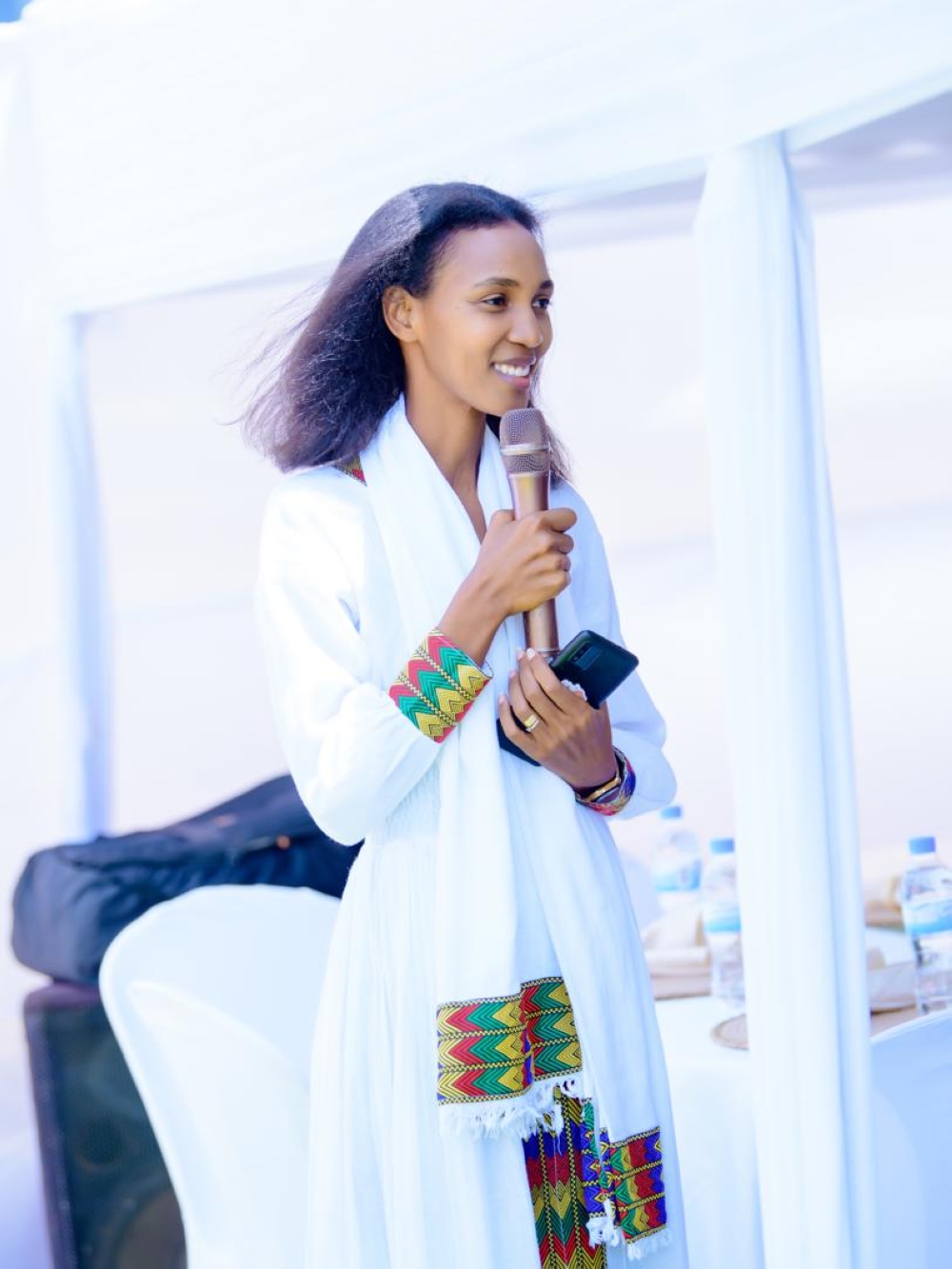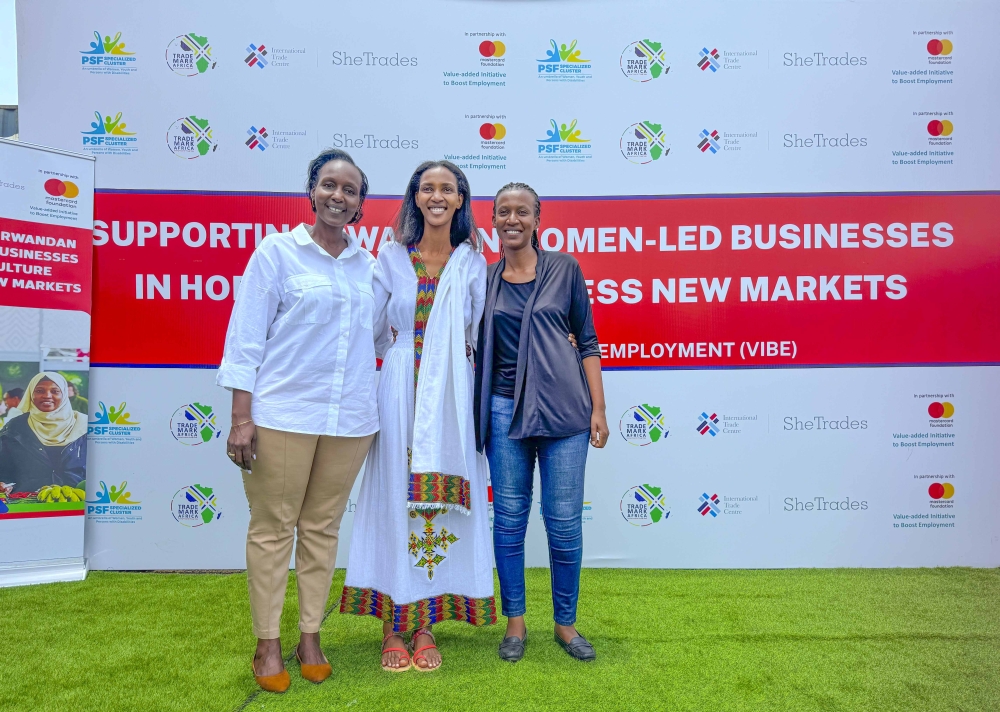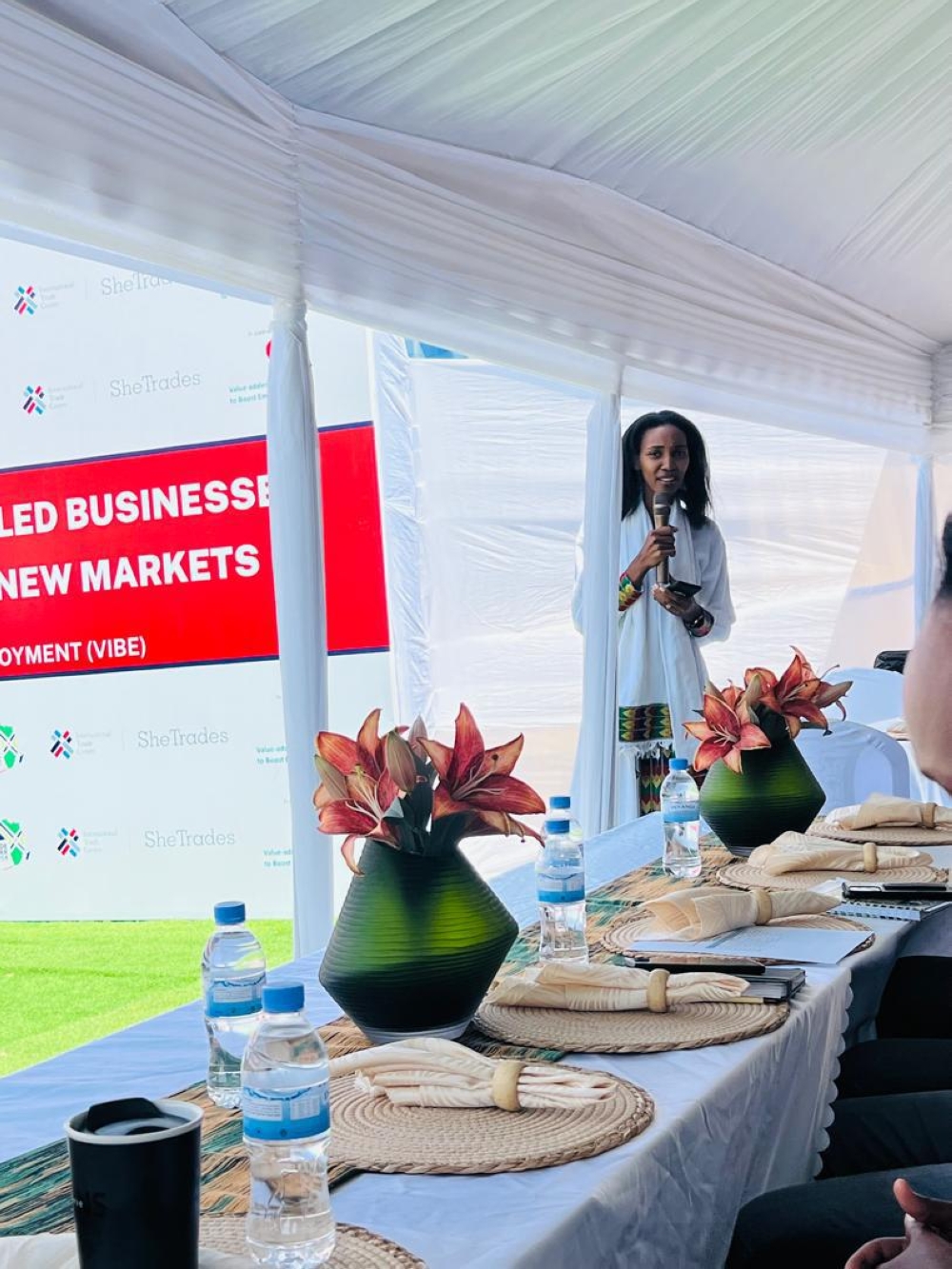
Our Projects are
Transforming African Trade
Quick Contacts
2nd Floor, Fidelity Insurance Centre Waiyaki Way, Westlands

On October 4, 2024, Bahage Foods Ltd made history as the first Rwandan woman-led business—and the fourth ever in Rwanda—to export a full container of 22 tonnes of Hass avocadoes.
This achievement highlights the immense growth potential of Rwanda’s agricultural exports, especially for horticultural businesses led by young women, who face compounded, gendered barriers in accessing productive resources, packaging, start-up capital, business capacity-building, and financing to scale up and unlock new markets.
With this shipment set to arrive in the United Arab Emirates in the coming weeks, Bahage Foods Ltd. Chief Executive Officer Angel Uwantege’s breakthrough proves that with access to the right resources and opportunities—including market information, market access opportunities through trade fairs and missions, as well as capacity-enhancing training programs on confidence building, communication, negotiation, pitching, and marketing—young Rwandan women entrepreneurs can drive agribusiness exports, an area of high economic growth potential for Rwanda.

Uwantege has received market access support through the Value-added Initiative to Boost Employment (VIBE) for Women-led Businesses Programme, which is co-implemented by TradeMark Africa and the International Trade Centre (ITC), and in partnership with Mastercard Foundation. The VIBE Programme aims to create gender-inclusive market opportunities in the agricultural value chain so that young women can become an engine for the country’s export-led growth.
“Bahage Foods Ltd is one of the pioneers of horticulture exporters in Rwanda, a sector that has not existed for many years. We started like any other small company, facing many challenges that were difficult to address. However, it was a great opportunity to partner with the VIBE Programme, and since then, it has been a remarkable journey that has significantly improved our professionalism and business approach.
“Having the chance to meet, network, and synergise with potential clients through various international exhibitions/fairs opened doors for us to sign deals with buyers and learn from other experiences,” said Uwantege.

Through the VIBE Programme, Uwantege exhibited at international trade fairs, such as Fruit Logistica 2024 in Berlin, Germany, where she met with potential buyers from Spain, Italy, and the United Arab Emirates. She also participated in the programme’s UK – Rwanda Trade Mission in May 2024, where she struck deals with UK fresh fruits and vegetables importers.
The VIBE Programme’s market linkage activities tangibly expanded her business networks and contributed to Bahage Foods Ltd.’s securing of this export deal—the first, with many more milestones to come.
Special thanks to our partners TradeMark Africa and the Mastercard Foundation, the Private Sector Federation Specialized Cluster, the host of the SheTrades Rwanda Hub, the government institutions such as the National Agriculture Export Development Board (NAEB) and the Rwanda Development Board (RDB).
About the VIBE Programme
TradeMark Africa (TMA), and the International Trade Centre in partnership with Mastercard Foundation, are co-implementing the five-year Value-added Initiative to Boost Employment (VIBE) Programme with the goal of increasing dignified and fulfilling employment for youth, particularly among excluded groups such as women, refugees, and persons with disabilities in Rwanda. VIBE is designed to respond to the Mastercard Foundation’s 10-year Young Africa Works (YAW) strategy, launched in Rwanda in 2018, to provide opportunities for young people in Africa to secure dignified and fulfilling work.
About TradeMark Africa
TradeMark Africa (TMA), formerly TradeMark East Africa, is an Aid-for-Trade organisation that was established in 2010, with the aim of growing prosperity through increased trade. TMA operates on a not-for-profit basis and is funded by: Belgium, the Bill and Melinda Gates Foundation, Canada, Denmark, the European Union, Finland, France, Ireland, the Netherlands, Norway, the United Kingdom, and the United States of America. TMA works closely with regional intergovernmental organisations, including the African Union (AU), the African Continental Free Trade Area (AfCFTA) Secretariat, the East Africa Community (EAC), the Intergovernmental Authority on Development (IGAD), the Common Market for East and Southern Africa (COMESA), the Southern Africa Customs Union (SACU), national Governments, the private sector and civil society organisations.
About Mastercard Foundation
The Mastercard Foundation is a registered Canadian charity and one of the largest foundations in the world. It works with visionary organisations to advance education and financial inclusion to enable young people in Africa and Indigenous youth in Canada to access dignified and fulfilling work. Established in 2006 through the generosity of Mastercard when it became a public company, the Foundation is an independent organisation separate from the company, with offices in Toronto, Kigali, Accra, Nairobi, Kampala, Lagos, Dakar, and Addis Ababa. Its policies, operations, and program decisions are determined by the Foundation’s Board of Directors and leadership.
About International Trade Centre
ITC is the joint agency of the United Nations and the World Trade Organization (WTO) supporting small businesses from developing countries to become more competitive and access international markets. ITC works closely with partners along global value chains, business support institutions and policymakers.
ITC SheTrades Initiative targets all stakeholders across the trade and business ecosystem to create the right conditions for every woman, everywhere to realise their full economic potential. We provide women entrepreneurs and producers with access to key knowledge, resources, and networks, support policymakers on inclusive policy reforms, and leverage public and private partnerships to amplify the impact of our work.

Disclaimer: The views and opinions expressed in this article are those of the authors and do not necessarily reflect the official policy or position of TradeMark Africa.